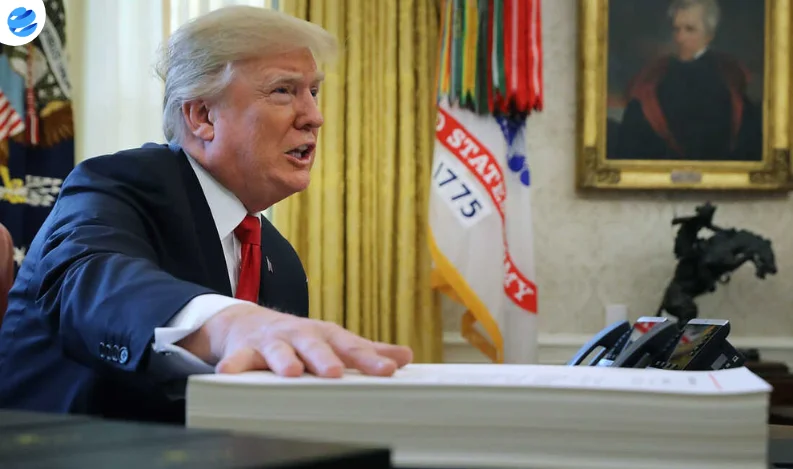U.S. President Donald Trump’s ambitious tax and spending bill — dubbed by him as the “big, beautiful bill” — remains stalled in Congress, even as Republican leaders scramble to unite their narrow majority around its sweeping provisions. Despite narrowly passing the House Budget Committee on Sunday night, the legislation faces resistance from within Trump’s own party, centering on four highly contentious issues.
The bill blends an extension of the 2017 Trump-era tax cuts with new tax provisions, spending reductions, and significant policy shifts. But ideological differences among House Republicans — especially between fiscal conservatives and moderates — have brought negotiations to a standstill. The House Freedom Caucus, known for its budget hawkishness, has emerged as a major obstacle.
How Much to Cut?
At the heart of the conflict is the scale of proposed spending cuts. The bill is projected by the nonpartisan Congressional Budget Office to add $2.3 trillion to the national debt over the next decade, which currently stands at $36.2 trillion. While supporters hope to balance the tax cuts with reductions to green energy incentives and social programs, budget hawks argue the measures fall short.
This has raised alarm among deficit-conscious Republicans, who say the bill betrays core conservative values. Meanwhile, moderates worry that aggressive cuts could alienate voters ahead of the 2026 midterm elections.
Medicaid Work Requirements
Perhaps the most divisive proposal is the overhaul of Medicaid. The bill includes a requirement that able-bodied recipients must work at least 80 hours per month to remain eligible — a provision now scheduled to begin as early as next year, rather than in 2029 as originally proposed.
Hardliners like Representatives Chip Roy, Ralph Norman, Josh Brecheen, and Andrew Clyde have pushed for stricter eligibility rules. In response, House Speaker Mike Johnson has offered compromises, including a pledge to prevent undocumented immigrants from accessing the program.
But others, such as Senator Josh Hawley of Missouri, have warned against cutting Medicaid at all. In a recent op-ed, Hawley called the changes “morally wrong and politically suicidal,” voicing concern that millions of low-income Americans could lose coverage.
State and Local Tax Deductions
Another pressure point comes from Republican lawmakers in high-tax states such as New York and California. These members, part of the bipartisan SALT Caucus, are seeking to raise the $10,000 cap on state and local tax deductions.
A tentative deal was struck with Speaker Johnson to raise the cap to $40,000, but the compromise has sparked backlash from fiscal conservatives who demand that any new tax breaks be offset by equivalent spending cuts.
Food Assistance Cuts
The proposal also seeks major changes to the Supplemental Nutrition Assistance Program (SNAP), commonly known as food stamps. Under the bill, states would be required to cover 5% of the benefits and 75% of administrative costs — a dramatic shift from the current structure where states pay none of the benefit costs and half of administrative expenses.
The plan would also expand work requirements to cover recipients without dependents up to age 64, up from the current cutoff of 54. While Republicans argue these changes would curb waste and encourage employment, Democrats have blasted the proposal.
“This is a slap in the face to families struggling to put food on the table,” said Democratic National Committee Chair Ken Martin. According to government data, 12% of Americans received SNAP benefits last year, with participation particularly high in Republican-leaning states like Alabama and Oklahoma.
Uncertain Future in the Senate
With Republican infighting unresolved, and opposition from Democrats remaining firm, the bill’s fate in the Senate is far from assured. Trump, however, continues to rally support, warning GOP lawmakers that opposing the bill could cost them politically.
The coming days are expected to see intense negotiations, as Republican leadership works to reconcile these sticking points and push the legislation through Congress.























